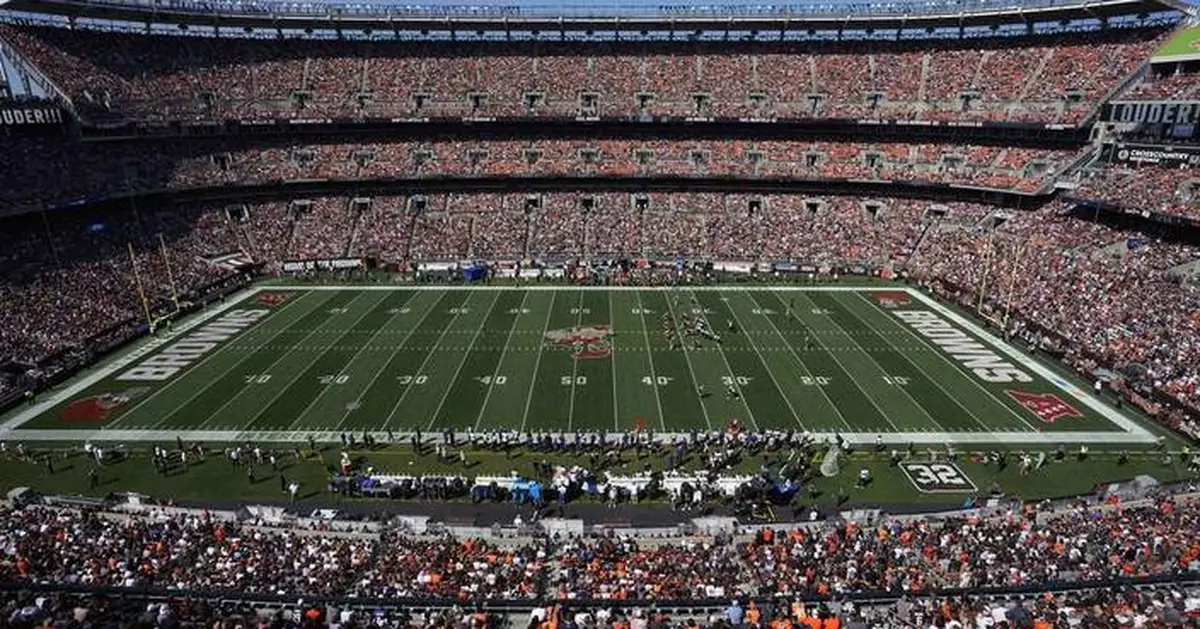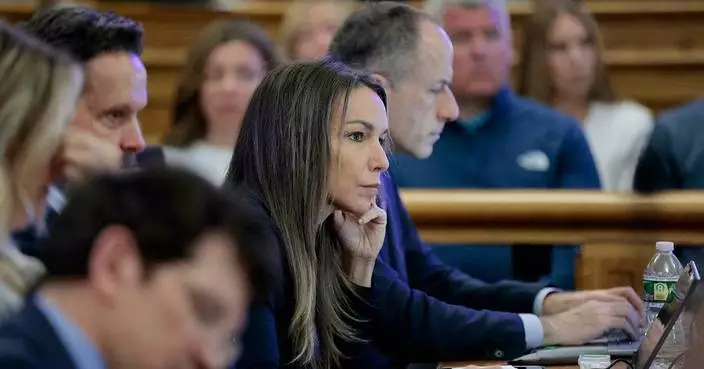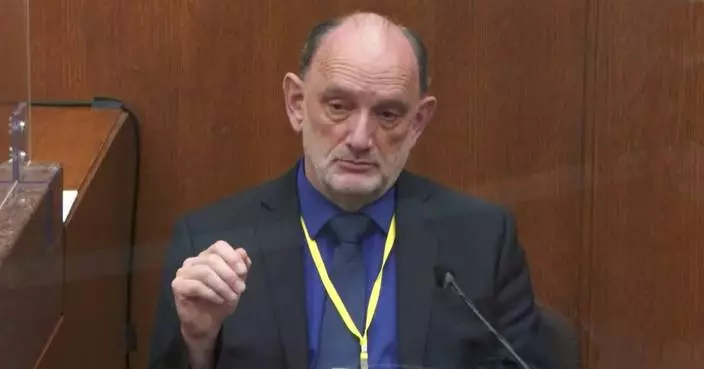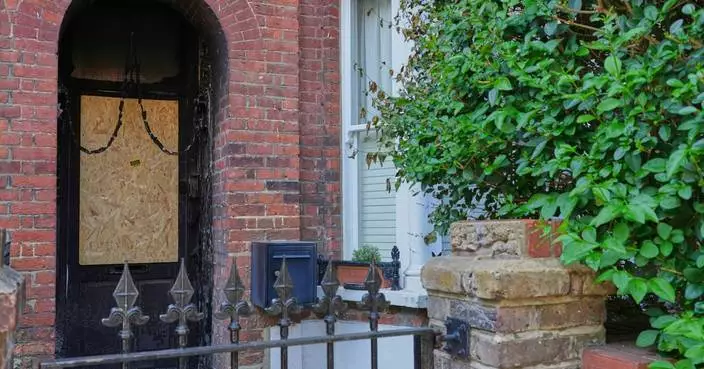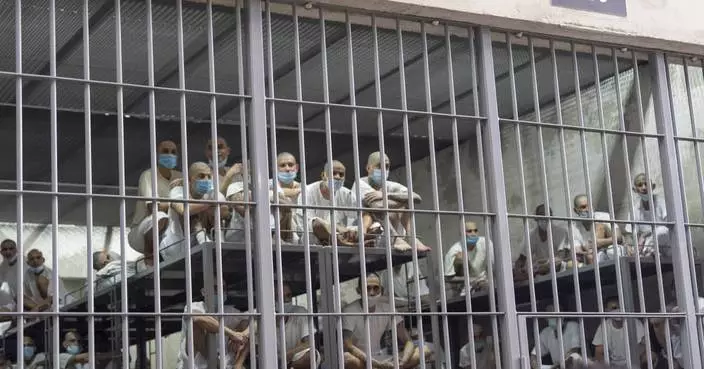CLEVELAND (AP) — The Cleveland Browns' push to move out of the city and play in a proposed domed stadium has encountered a new road block.
Cleveland Mayor Justin Bibb sent a letter to owners Dee and Jimmy Haslam, saying the city intends to invoke the “Modell Law” to prevent them from leaving the Browns' current lakefront stadium. The lease expires in 2028.
Bibb said he wants a response from the Browns by Jan. 9 and to comply or the city will “take appropriate legal action,” the letter states.
The Modell Law was passed in 1996 after former Browns owner Art Modell moved the franchise to Baltimore. It states that no owner of a professional sports team in Ohio playing in a tax-supported stadium can go elsewhere without an agreement with the city in which it plays or unless that city is given six months' advance notice with an opportunity to buy the team.
The team previously filed a federal lawsuit in hopes of getting “clarity” on the law. That case is pending.
In response to Bibb's letter, the Browns said “the statute and the city's actions create uncertainty and do not serve the interest of Greater Cleveland.”
The city's threat to use the Modell law is just the latest maneuver in what has become an ugly back-and-forth battle with the Browns.
The Haslams, who have owned the team since 2012, want to build a $2.4 billion domed stadium and surrounding entertainment complex in Brook Park, about 10 miles south of Cleveland. The team wants to split the cost of the stadium with the city and county in a private/public partnership.
The city has proposed paying for half of renovation costs at the current 65,000-seat stadium, which opened in 1999 when the NFL awarded Cleveland an expansion franchise.
The Haslams have argued that repairing the team's stadium don't solve bigger issues with parking and overall access. They believe a dome would spur wider regional growth with the ability to attract and host major sporting events and concerts.
AP NFL: https://apnews.com/hub/NFL
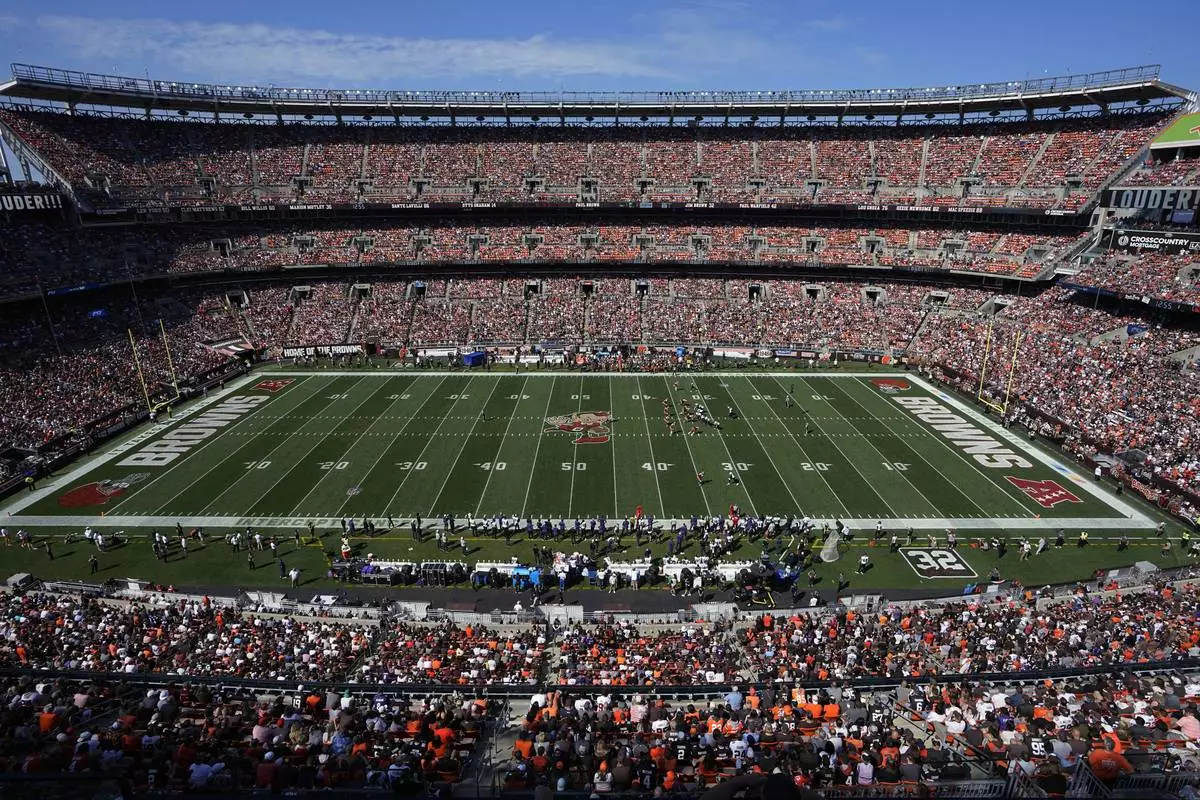
FILE - Cleveland Browns Stadium during an NFL football game between the Baltimore Ravens and the Cleveland Browns, Sunday, Oct. 1, 2023, in Cleveland. (AP Photo/Sue Ogrocki, File)
VINEYARD HAVEN, Mass. (AP) — Lewis Pugh has followed an unspoken rule during his career as one of the world’s most daring endurance swimmers: Don’t talk about sharks. But he plans to break that this week on a swim around Martha’s Vineyard, where “ Jaws” was filmed 50 years ago.
The British-South African was the first person to complete a long-distance swim in every ocean of the world — and has taken on extreme conditions everywhere from Mount Everest to the Arctic.
“On this swim, it’s very different: We’re just talking about sharks all the time,” joked Pugh, who will, as usual, wear no wetsuit for the 62-mile (100-kilometer) swim.
For his swim around Martha’s Vineyard in 47-degree (8-degree Celsius) water he will wear just trunks, a cap and goggles.
Pugh, 55, is undertaking the challenge because he wants to change public perception around the now at-risk animals — which he said were maligned by the blockbuster film as “villains, as cold-blooded killers.” He will urge for more protection for sharks.
“We need to protect life in our oceans — all our futures rely on it,” he said on Thursday before starting out from a beach in front of the Edgartown Harbor Lighthouse and swimming an initial 3.9 miles (6.2 kilometers) for nearly three hours. On Friday, he'll get in the water and swim again — and again, for an estimated 12 days, or however long it takes him to complete the swim. He'll spend the rest of his time on the Vineyard educating the public about sharks.
Later Thursday, he crawled out of the water, where curious seals bobbed in the waves, and onto a boat to warm up and refuel.
He began his endeavor just after the New England Aquarium confirmed the first white shark sighting of the season, earlier this week off the coast of Nantucket.
“It’s going to test me not only physically, but also mentally,” he said, while scoping out wind conditions by the starting line earlier this week. “I mean every single day I’m going to be speaking about sharks, sharks, sharks, sharks. Then, ultimately, I’ve got to get in the water afterwards and do the swim. I suppose you can imagine what I’ll be thinking about.”
Pugh said the swim will be among the most difficult he’s undertaken, which says a lot for someone who has swum near glaciers and volcanoes, and among hippos, crocodiles and polar bears. No one has ever swum around the island of Martha's Vineyard before.
But Pugh, who often swims to raise awareness for environmental causes — and has been named the United Nations Patron of the Oceans for several years — said no swim is without risk and that drastic measures are needed to get his message across: Around 274,000 sharks are killed globally each day — a rate of 100 million every year, according to the American Association for the Advancement of Science.
“It was a film about sharks attacking humans and for 50 years, we have been attacking sharks,” he said of “Jaws.” “It’s completely unsustainable. It’s madness. We need to respect them.”
He emphasizes that the swim is not something nonprofessionals should attempt. He’s accompanied by safety personnel in a boat and kayak and uses a “Shark Shield” device that deters sharks using an electric field without harming them.
Pugh remembers feeling fear as a 16-year-old watching “Jaws” for the first time. Over decades of study and research, awe and respect have replaced his fear, as he realized the role they play in maintaining Earth’s increasingly fragile ecosystems.
“I’m more terrified of a world without sharks, or without predators,” he said.
“Jaws” is credited for creating Hollywood’s blockbuster culture when it was released in summer 1975, becoming the highest grossing film up until that time and earning three Academy Awards. It would impact how many viewed the ocean for decades to come.
Both director Steven Spielberg and author Peter Benchley have expressed regret over the impact of the film on viewers’ perception of sharks. Both have since contributed to conservation efforts for animals, which have seen populations depleted due to factors like overfishing and climate change.
Discovery Channel and the National Geographic Channel each year release programming about sharks to educate the public about the predator.
Greg Skomal, marine fisheries biologist at Martha’s Vineyard Fisheries within the Massachusetts Division of Marine Fisheries, said many people tell him they still won't swim in the ocean because of the sheer terror caused by the film.
“I tend to hear the expression that, ‘I haven’t gone in the water since ‘Jaws’ came out,’” he said.
But Skomal, who published a book challenging the film's inaccuracies, said “Jaws” also inspired many people — including him — to study marine biology, leading to increased research, acceptance and respect for the creatures.
If “Jaws” were made today, he doesn't think it'd have the same effect. But in the 1970s, “it was just perfect in terms of generating this level of fear to a public that was largely uneducated about sharks, because we were uneducated. Scientists didn’t know a lot about sharks.”
Skomal said the biggest threat contributing to the decline of the shark population now is commercial fishing, which exploded in the late 1970s and is today driven by high demand for fins and meat used in food dishes, as well as the use of skin to make leather and oil and cartilage for cosmetics.
“I think we’ve really moved away from this feeling, or the old adage that, ‘The only good shark is a dead shark,’” he said. “We’re definitely morphing from fear to fascination, or perhaps a combination of both.”
See an AP photo gallery from around Martha's Vineyard and the start of Pugh's swim here.
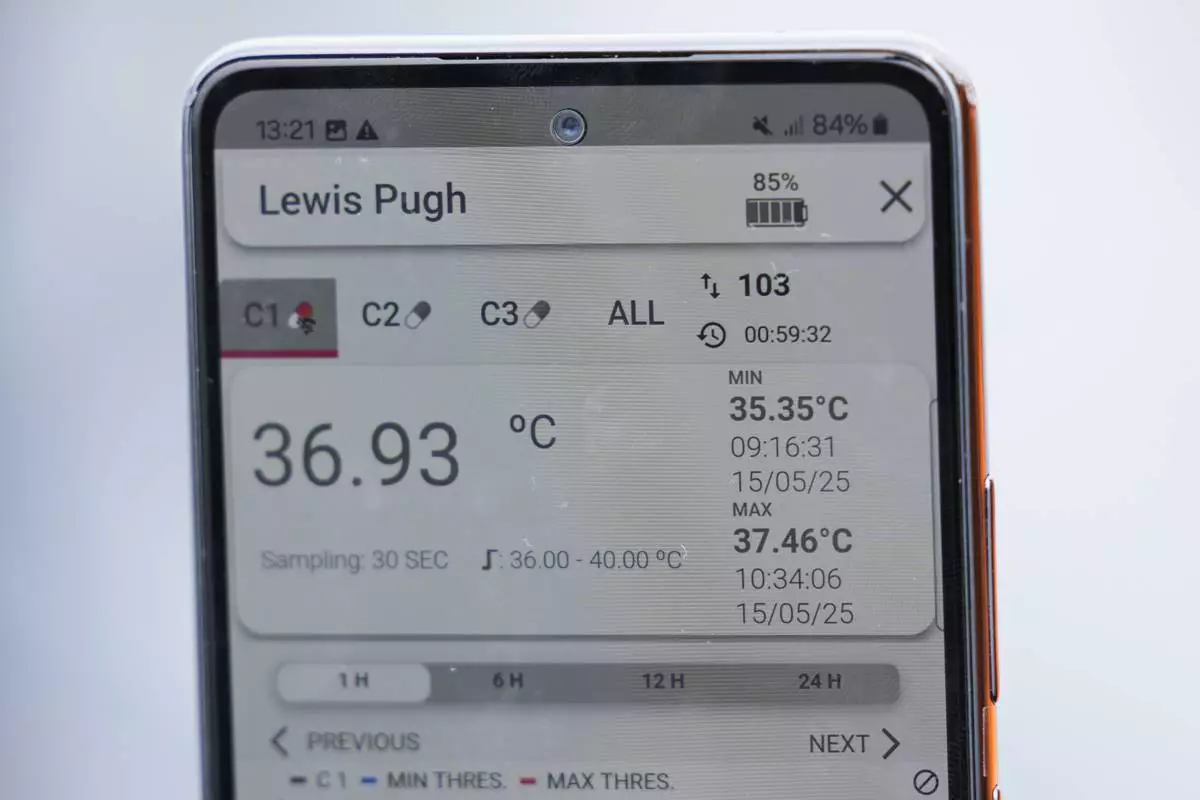
An app is used to monitor endurance swimmer Louis Pugh's temperature while he swims in 47 degree F water, Thursday, May 15, 2025, off Edgartown, Mass. (AP Photo/Robert F. Bukaty)

Endurance swimmer Louis Pugh swims off the coast pf Edgartown, Mass., Thursday, May 15, 2025. (AP Photo/Robert F. Bukaty)
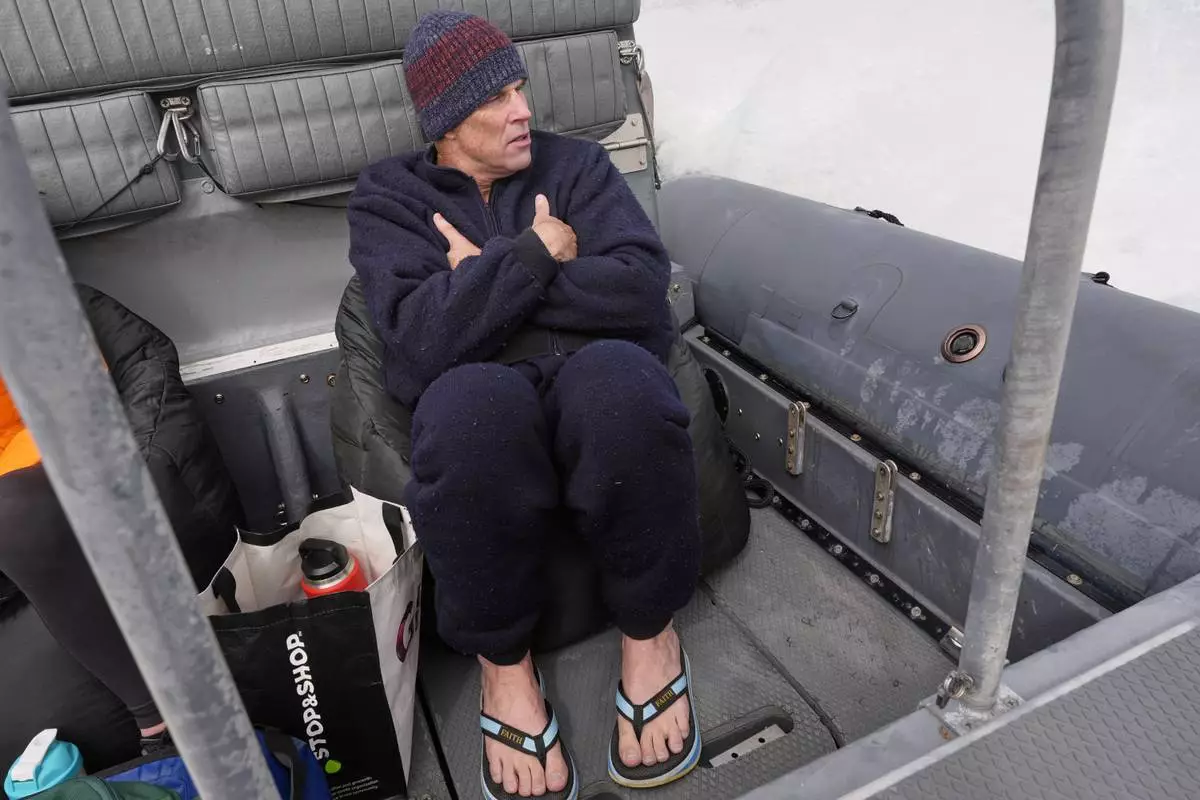
Endurance swimmer Louis Pugh warms up on the ride back to shore after completing the first leg of his swim around Martha's Vineyard, Thursday, May 15, 2025, off Edgartown, Mass. (AP Photo/Robert F. Bukaty)
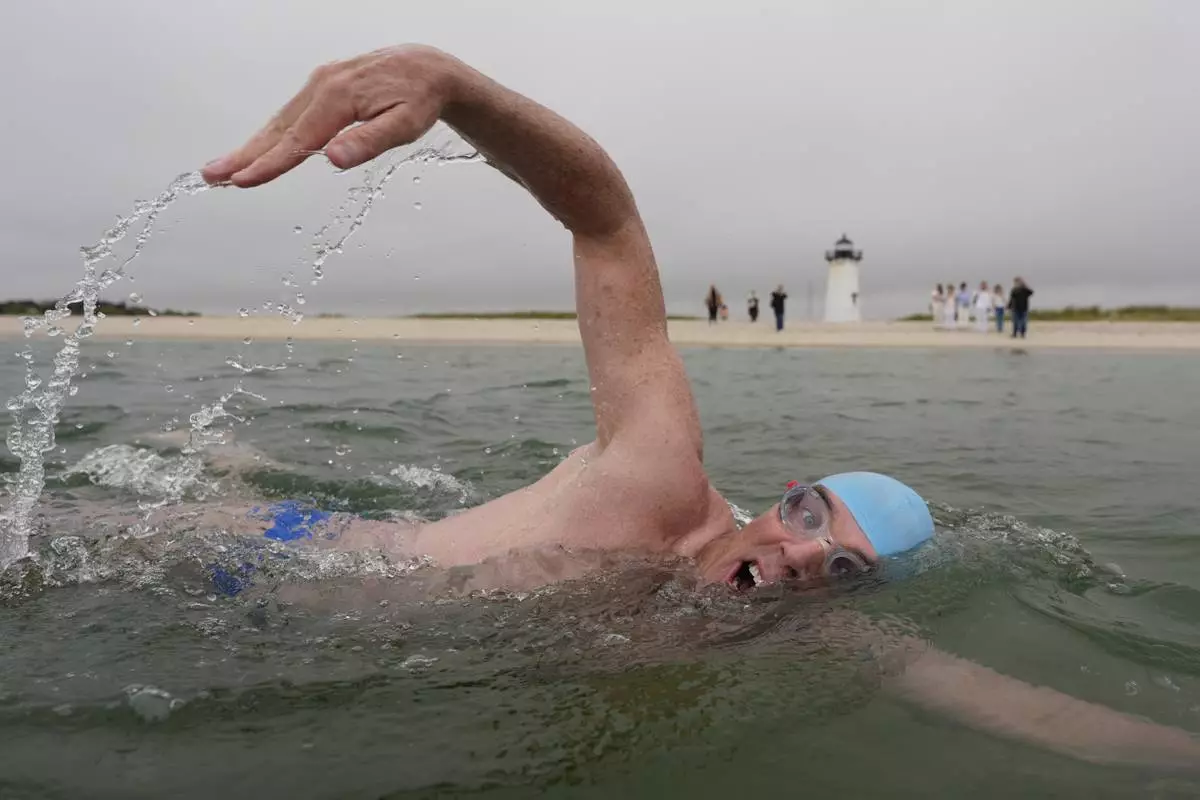
Endurance swimmer Louis Pugh swims near the Edgartown Harbor Light, Thursday, May 15, 2025, in Edgartown, Mass. (AP Photo/Robert F. Bukaty)

A woman views the sunset at Menemsha Beach, Wednesday, May 14, 2025, in Chilmark, Mass. (AP Photo/Robert F. Bukaty)

A man navigates the wake behind the Martha's Vineyard Ferry, Monday, May 12, 2025, in Vineyard Haven, Mass. (AP Photo/Charles Krupa)
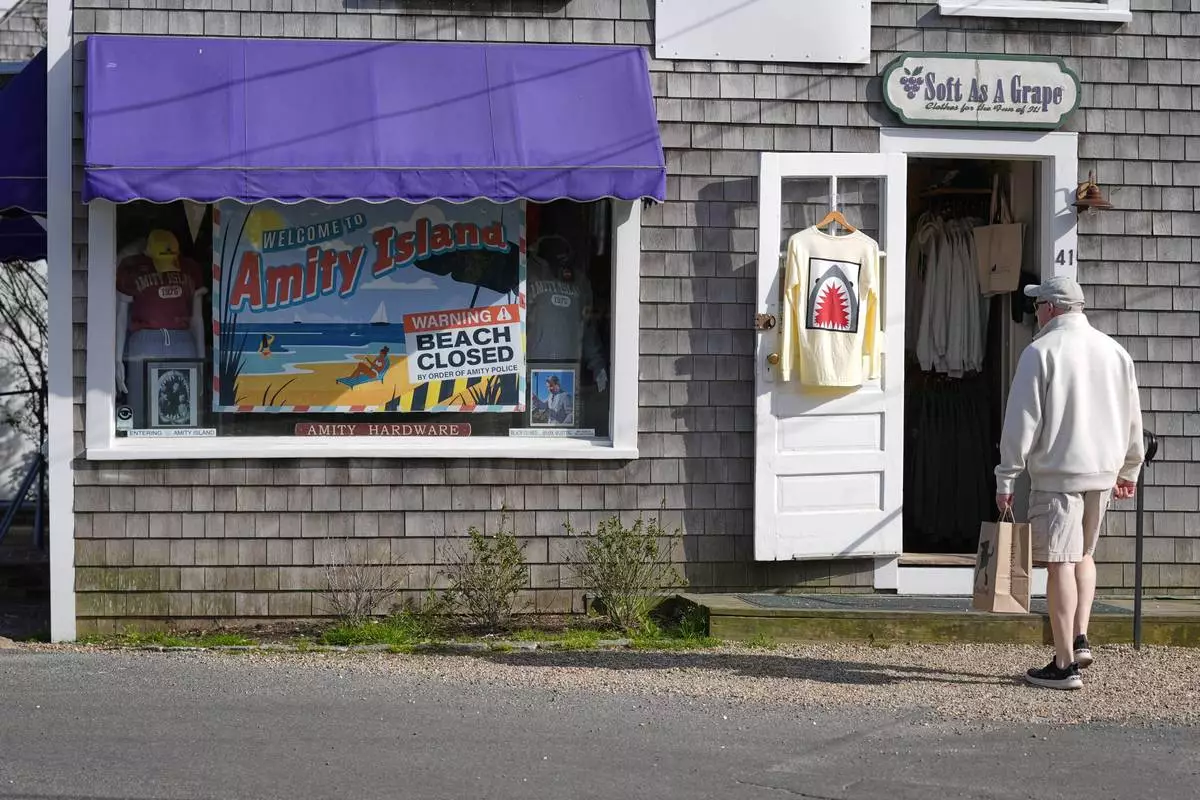
A visitor arrives at a shop selling Jaws-related souvenirs, Wednesday, May 14, 2025, in Edgartown, Mass. (AP Photo/Robert F. Bukaty)

A shopper walks past items featuring the Jaws movie at Neptune's Sea Chest gift shop, Monday, May 12, 2025, in Vineyard Haven, Mass., on Martha's Vineyard Island. (AP Photo/Charles Krupa)
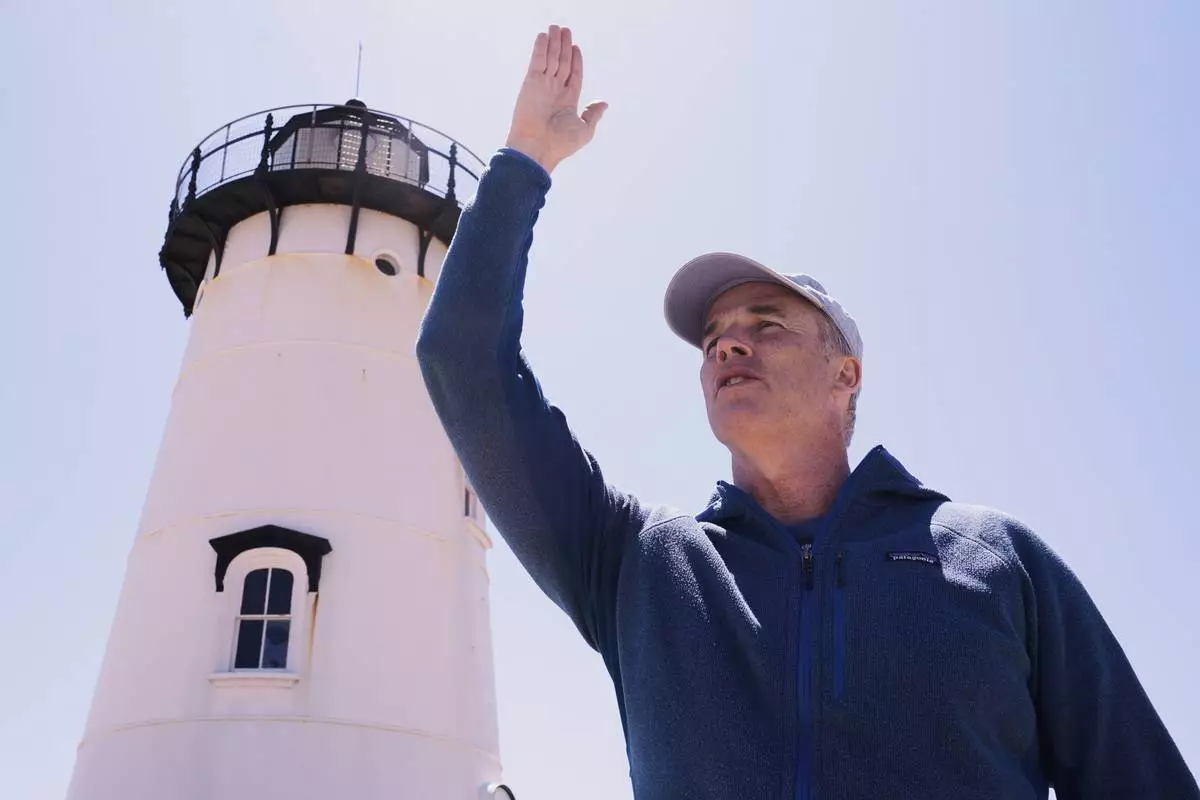
Endurance swimmer Lewis Pugh gestures to where he will begin his swim around Martha's Vineyard island, which is expected to take 12 days, near the Edgartown Lighthouse, Monday, May 12, 2025, in Edgartown, Mass. (AP Photo/Charles Krupa)
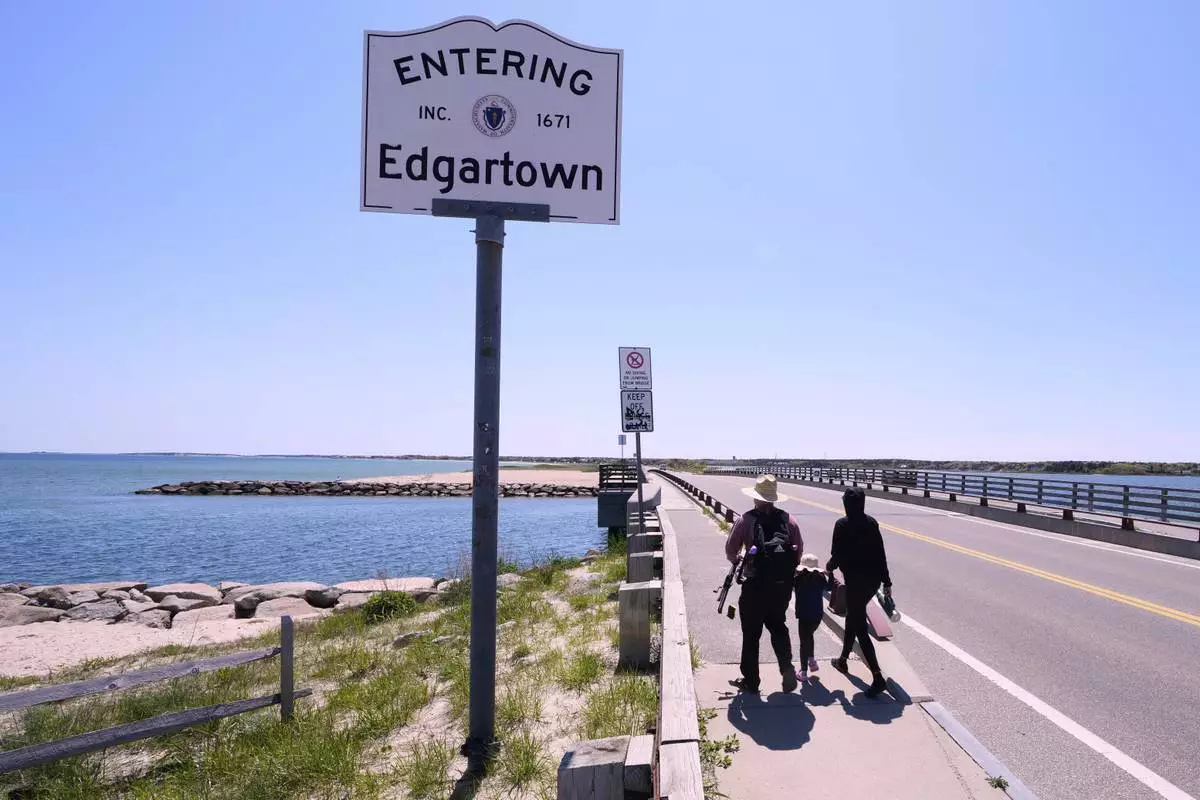
A family walks to the span of the American Legion Memorial Bridge, also known as the "Jaws Bridge", while spending the day fishing, Monday, May 12, 2025, in Edgartown, Mass., on Martha's Vineyard Island. (AP Photo/Charles Krupa)



